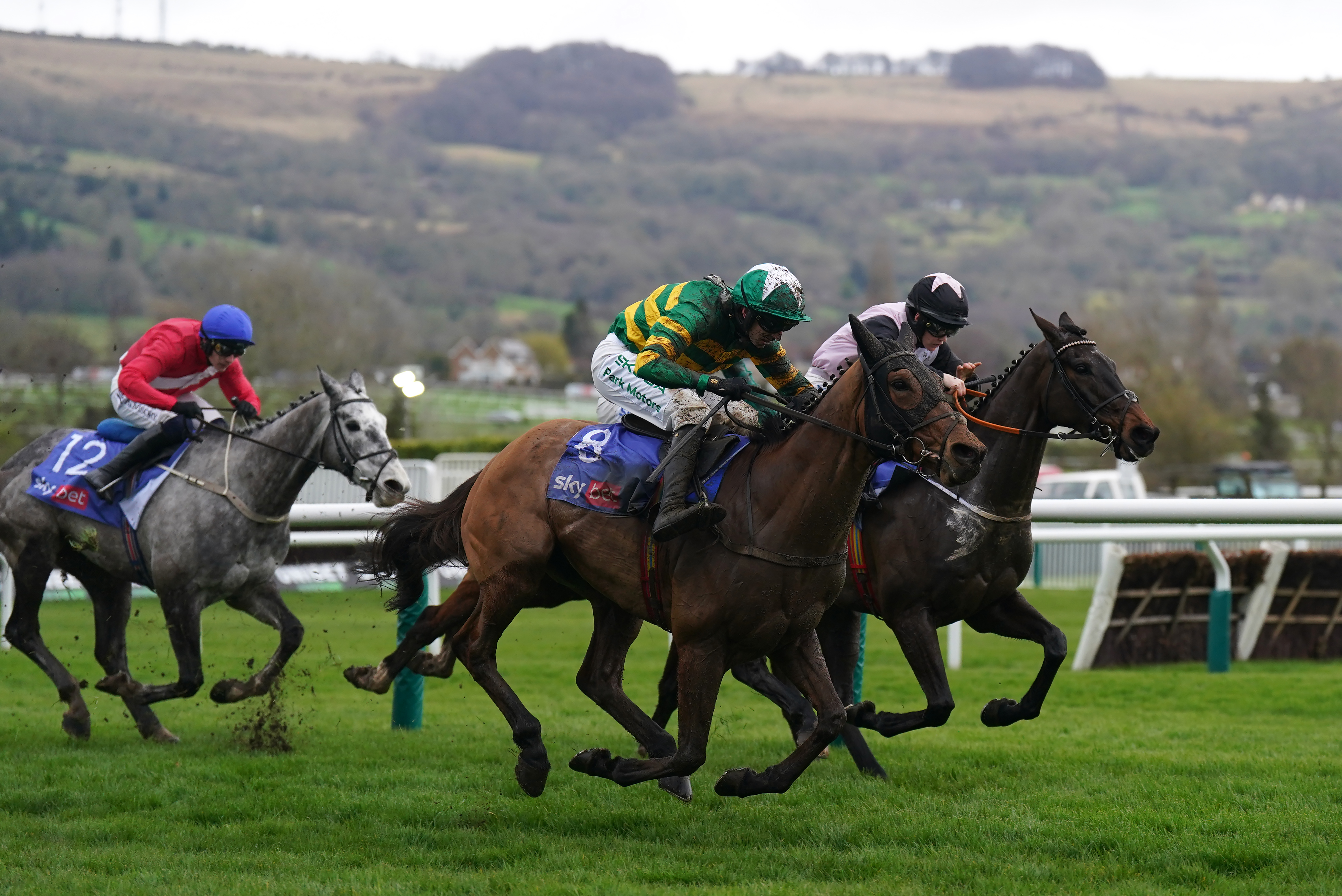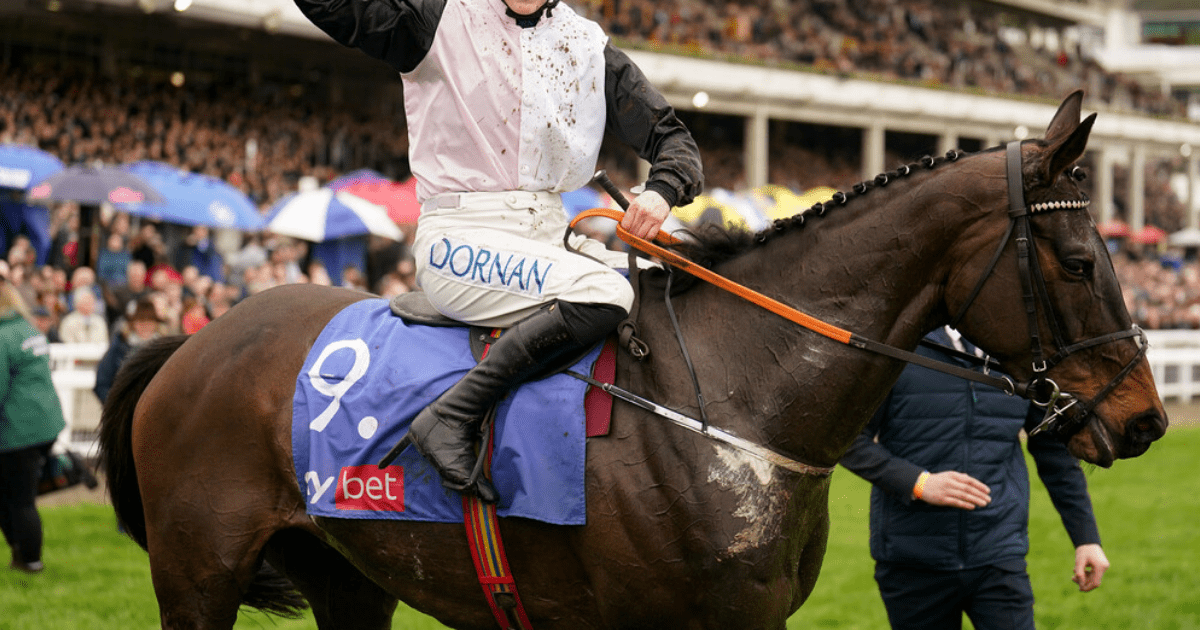Wrong Winner Announced
ITV made a major blunder during the first race at the Cheltenham Festival, declaring the wrong winner after Rachel Blackmore's victory with Slade Steel in the Sky Bet Supreme Novices' Hurdle.
Fans React
Viewers took to social media to criticize ITV's mistake, with one fan calling out the coverage as subpar and another expressing disappointment in the incorrect on-screen graphic.
Blackmore's Triumph
Rachel Blackmore, riding Slade Steel, emerged victorious in the opening race of the week, showcasing impressive skills and strategy. Despite the blunder, Blackmore's win was celebrated by fans and pundits alike.
Unique Insights from Jockey Thomas Costello
Thomas Costello, dubbed the 'world's tallest jockey', provided a glimpse into his challenging routine as a jockey, highlighting the struggles of maintaining weight and the dietary sacrifices he makes to stay fit for races.

Frequently Asked Questions
What diet is the most suitable for a horse that races?
Racehorses need a diet that is high quality and perfectly balanced to support their training and racing. The diet is usually a mixture of high-quality hay, grains like oats and barley, as well as commercially prepared racehorse feed. A diet that is rich in essential vitamins, minerals and nutrients will support the horse’s health and help them perform at their best.
What is the importance of a horse’s pedigree to racing success?
While pedigree can be an indicator of potential, it is not the sole determinant of a racehorse’s success. Lineage may indicate that a racehorse has inherited an aptitude for speed or durability, but other factors like training, temperament and health are equally important. Training can enhance a horse’s natural abilities, and allow it to perform better than horses with more impressive pedigrees.
Can you ride a racehorse in any place?
While initial training on a variety tracks is possible, specific race preparation often requires facilities to simulate the conditions a horse will encounter in competition. This includes regulation-sized tracks with the same type of surface the horse will race on. This helps to condition horses and allows them to become familiar with that specific racing environment.
When can a horse be expected to start racing training?
Horses may begin their basic training as yearlings but they will usually begin more rigorous racing training and conditioning at around two years. It is at this age that their bodies are ready to take on the demands of the racetrack, yet still young and flexible enough to adapt. Depending on the temperament and development of the horse, exact timing may differ.
Is a special shoe required for racehorses?
Racehorses typically wear specialized shoes called racing plates, which are lighter and thinner than regular horseshoes. These plates offer the necessary grip on the track while minimizing their weight. A racehorse-trained farrier will fit and select the right shoes for each horse based on its hoof shape and the racing surface.
How can I prepare my horse for racing?
It is important to condition a horse gradually. This includes long distance training to build stamina along with shorter workouts that increase speed. It is important to strengthen the horse’s cardiovascular system, muscles, and skeletal structures over time by following a regiment that mimics racing conditions without causing injury.
Statistics
- Statistically, less than 1% of thoroughbred foals born each year will go on to win a stakes race.
- The Injury Database from The Jockey Club reports that synthetic racing surfaces have a lower horse fatality rate than dirt tracks, with a statistically significant difference of 1.2 fatalities per thousand starts on synthetics compared to 2.0 on dirt tracks.
- An extensive survey indicated that over 90% of racehorse trainers utilize swimming as a low-impact exercise in their conditioning routines.
- Gastrointestinal issues affect up to 90% of racehorses during their training, emphasizing the need for careful dietary management.
- Around 80% of thoroughbred racehorses begin their racing careers by the age of two, according to industry estimates.
- Studies suggest that proper early training can reduce the risk of musculoskeletal injuries in racehorses by up to 50%.
External Links
grayson-jockeyclub.org
bloodhorse.com
theridinginstructor.net
thoroughbred-racing.net
jockeyclub.com
horseracing.com
How To
How to Mentally Motivate a Racehorse during Training
Maintain a racehorse’s mental stimulation by exposing him to different environments and training exercises. This will prevent boredom, stress and fatigue. In addition to trackwork, you can also do outdoor exercises and trail rides. The horse can be stimulated by learning new commands or patterns. Social interactions between horses and the establishment of a bond with their handlers can positively affect a horse’s mental health. A horse that is mentally satisfied will be more cooperative and focused during training and racing.

